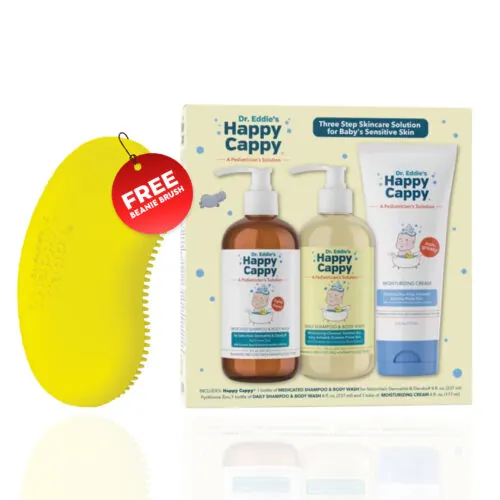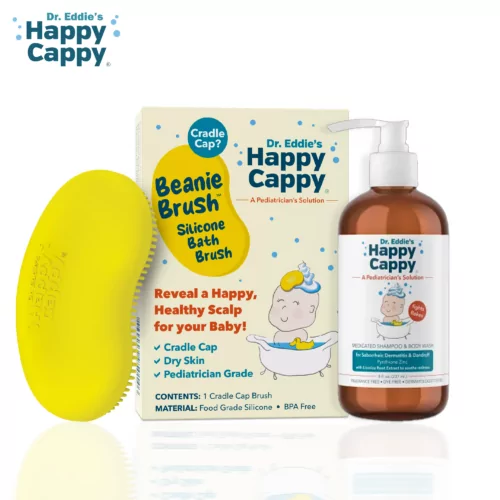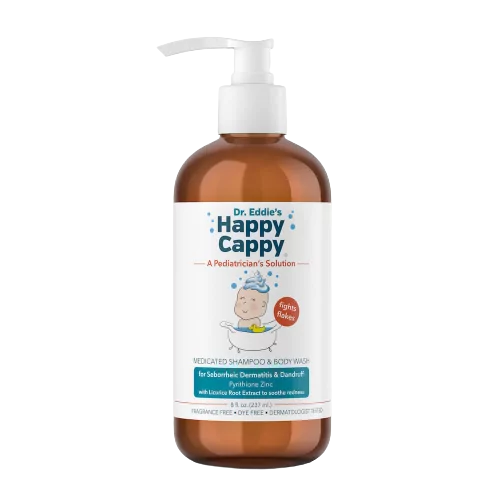Have you ever struggled with red, itchy, or inflamed patches of skin on your face? You might be dealing with facial eczema, a common but frustrating condition.
In this article, we’re going to talk about the causes and symptoms of eczema on the face and some tips for treating your facial eczema at home.
Common Face Eczema Symptoms
Eczema symptoms on the face are usually similar to the symptoms of eczema found elsewhere on the body. But face eczema symptoms can be more difficult to deal with due to the increased sensitivity of facial skin, potential eye irritation, and fear of social stigma.
Some common symptoms of eczema that are frequently reported include:
- Dry skin
- Itching, especially at night
- Red patches
- Small raised bumps that may leak fluid or crust over when scratched
- Red, raw, inflamed skin from scratching
The Causes of Eczema
The exact cause of eczema is not known, but it is thought to be related to genetic conditions that affect the skin’s ability to retain moisture and protect you from bacteria, allergens, and other irritants.
People diagnosed with eczema also frequently have a personal or family history of allergies, hay fever, or asthma.
Tips for Treating Eczema At Home
There are many at-home treatments available to help you keep your or your child’s face eczema symptoms under control.
Identify and Avoid Triggers
Try to identify and avoid triggers that make your eczema flare-up or worsen. Some things that have been found to face eczema symptoms worse include sweat, stress, drying soaps, harsh detergents, dust, or pollen. If you can identify what causes your eczema symptoms to flare, you can avoid them and hopefully experience fewer outbreaks.
Some people, particularly infants and children, experience flare-ups due to food allergies. Certain foods such as eggs, dairy products, soy, and wheat products have been associated with eczema flares.
Moisturize Your Skin
Moisturize your skin at least twice per day to help seal in your skin’s moisture. Your moisturizer should be free of alcohol, perfumes, dyes, or fragrances as these can all dry out or irritate your skin.
For young children, you can consider the use of a specially formulated baby eczema cream that contains no harsh ingredients and won’t leave skin feeling greasy.
Limit Baths and Showers
Use warm, rather than hot, water for your showers and baths. And try to limit your water exposure to no more than 10-15 minutes to prevent drying. Use gentle body washes and cleansers and avoid scrubbing irritated skin.
Consider switching to a specialized eczema body wash or shampoo without harsh surfactants that can strip moisture from already dry skin.
Consider OTC Medications
If itching is making your symptoms worse, you can try an over-the-counter topical steroid cream such as 1% hydrocortisone cream. This is available without a doctor’s prescription and might help to relieve itching and irritation in the short term.
You should avoid getting this cream near your eyes or eyelids. It also shouldn’t be used for more than a couple of days at a time without talking to your doctor.
Learn Relaxation Techniques
Stress is a common eczema trigger and is thought to increase inflammation in the body. Being stressed can also cause people to scratch habitually, making eczema worse. Learning various relaxation techniques can help decrease the severity and frequency of flare-ups.
Some techniques to try include:
- Medication
- Biofeedback
- Yoga
- Cognitive-behavioral therapy
- Tai chi
In Review
Eczema is a very common skin ailment. It can begin in childhood and continue into adulthood. You may also experience periods of flaring and remission
Face eczema symptoms can be particularly difficult to live with due to the thinner more sensitive skin of the face. Some people may also fear social stigma due to facial symptoms.
There are several home treatments available to help control you or your child’s eczema symptoms. These include avoiding triggers, using products and techniques that moisturize the skin and avoid drying it out, and using products and techniques to avoid making eczema worse by scratching.
These tips can help you control your eczema and get back to living your life without redness or itching.






